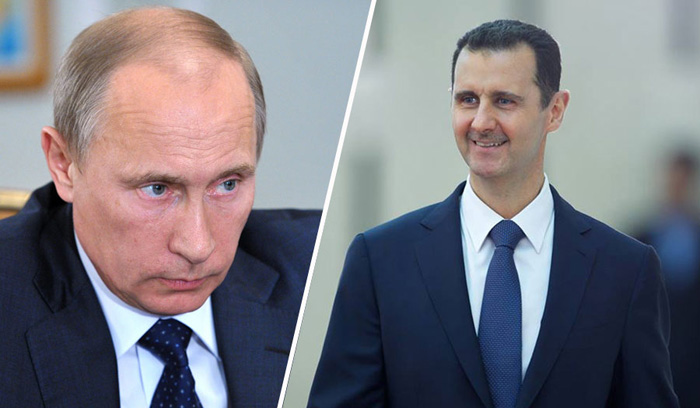TONY BRENTON
The war in Syria has been going on now for five years, if not longer, and there have been various attempted ceasefires in that time. People on the ground are saying this latest one, which is due to come into force on Friday, is likely to fail just like the others. The Russians were pressing for a longer period before the ceasefire came into force—they wanted a month to prepare. This would have given them enough time to help the Assad regime take back Aleppo, Syria’s largest city and former commercial centre. They now have until the end of week to at least complete the encirclement of the city.
The impression in the West is that Russia is determined to help the Syrian President Bashar al-Assad win a total victory in Syria, which is a misperception. Russia knows that Assad is not going to win back the total control he enjoyed before the 2011 Arab Spring uprising, especially over the country’s Sunni population. Russia’s action in Syria is an act of despair at the West’s powerlessness. From the moment that President Obama failed to follow through on the U.S.’s promise to take action against Assad’s use of chemical weapons in Syria in 2013, Putin has viewed him as weak and incompetent.
It is unlikely that Russia are planning to breach the ceasefire after Friday. But Assad has already unhelpfully said that he will go on to conquer all of Syria again and some opposition forces have said that they won"t participate, so there is every possibility that the forces on the ground will carry on fighting regardless. The northern Syrian border is a key danger zone in terms of turning this civil war into an international conflict. The Turks have made it clear that they will not let the Syrian Kurds control the Syrian side of that border. The Syrian Kurds are unusual in that they have the backing of both the U.S. and the Russians but if the Turks put in ground forces to challenge the Kurds, then a clash between the Russians and the Turks becomes a strong possibility. Relations are already extremely frosty between the two nations after Turkey downed a Russian warplane on the Syrian border in November 2015. This could lead to Russia potentially engaging in an armed confrontation with a member of NATO.
Putin believes Russia and the West should work together to defeat the threat of Islamic fundamentalism. But, while Russia are right in a sense that there is a shared objective—the defeat of the Islamic State militant group (ISIS)—they do not sufficiently acknowledge that one of the reasons for the rise of this extremist threat in Syria is Assad himself. Although they are willing to talk about Assad"s removal and may even be prepared to offer him asylum. Meanwhile the West does not sufficiently acknowledge Russia’s point that if we get rid of Assad the likely outcome is not the formation of a moderate government but a takeover by ISIS or one of its affiliates. The Western powers should be looking for common ground with Russia but the Americans, followed by the British and others, are refusing to talk seriously about this issue. That is why the Russian Foreign Minister, Sergey Lavrov, said last weekend that he thought the ceasefire had only a 49 percent chance of holding.
Russia is unlikely to send in ground troops to bolster Assad. The Russian people are haunted by the memory of their ill-fated war in Afghanistan which lasted from 1979 to 1989. Russia was still under Communist rule but despite the oppressive political system there was a fierce backlash against the government. Part of the reason for Putin’s cautious approach to the Syrian conflict is the fear that if the number of casualties starts mounting they will face a similar level of public anger. Russia’s parliamentary elections are scheduled for this autumn and while their electoral system is not entirely straight, it’s straight enough for popular resentment to be reflected if it is strong enough.
For the moment, Putin remains popular, partly due to the patriotic rush after the interventions in Ukraine and Syria, but the Russian economy has been badly hit—not so much by western economic sanctions but by the global collapse of the oil price. This is the first time since Putin became president, apart from a brief moment in 2008, that Russian living standards have fallen significantly. That is causing pain, and the one of thing Putin and his inner circle will fear most is that pain translating into a reduction of their stranglehold on Russia’s parliamentary system.







Comments